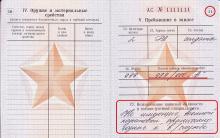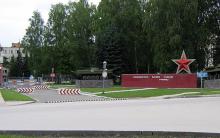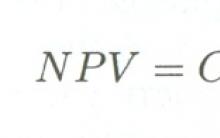Theme description: The Russian language remained and is now the language of poets and prose writers, the language of culture and a means of transmitting the national heritage of a huge cultural heritage from generation to generation.
There is a creeping feeling that now the Russian language is undervalued and its role is underestimated, or even that it is only used for the selfish purposes of modern society, leaving dark spots of swear words, replacing English and other words from foreign dictionaries, Internet jargon and “simple words”.
But the secret of the Russian language is that it is amazingly flexible and rich, all classes can communicate with it, and the same word can sound in dozens of variations and meanings. So “What is the secret of the Russian language”, “Russian word” and “Why do I love the Russian language?”
Let's think together and write our reasoning in the form of an essay on the topic:
"The great and mighty Russian language".
The richness, euphony and grandeur of the Russian language are the subject of admiration for many Russian classics. It is all the more surprising that our contemporaries underestimate its role, littering their speech with Anglicisms, jargon, colloquial expressions, newfangled Internet slang and swear words. If everyone thought about what value the Russian language is and what enormous opportunities it has for expressing thoughts, then they would strive to know it even more deeply and would neglect other means. What is the secret of the Russian language and why do I love it so much? I will try to explain with the help of weighty arguments and clear examples.
The richness of the Russian language lies not in the number of lexical units recorded in the dictionary, but in its flexibility, which has no boundaries. For example, it is believed that the English language contains the most words - about a million today. In the “Dictionary of the Modern Russian Literary Language” there are only 131,000. But this does not take into account the unique feature of our speech: if we take into account all possible word forms, then the number of lexical units in the Russian language will exceed 1.5 million.
Let us prove the validity of the above argument using a specific example. Let's take any noun from the Russian language dictionary. Let it be “mom”. Let's create word forms (grammatical varieties) by case and number: mom, mom, mom, moms (genitive singular), moms (nominative plural), moms, moms, (o) moms. In English, the word “mother” has only one word form - “mothers” (plural). Such a comparison can be made with almost every noun in the Russian language: most of them can have 8 times more word forms than in English.

The Russian language dictionary is impressive in terms of volume and flexibility of semantic meanings, so much so that a lifetime is not enough to fully master it, even if we are talking about a person whose native language is this. The numbers prove it very clearly: the absolute record for the number of words used belongs to A.S. Pushkin - about 24 thousand words (from the “Dictionary of the Pushkin Language”). A highly educated person uses a maximum of 8,000 words in his speech. The average “native speaker of Russian” has even less: about 3-4 thousand words. Isn’t this a reason to think about how limitedly we use the enormous potential of the Russian language and how ridiculous attempts to “enrich” our speech with jargon or Internet slang are?
The possibilities of the Russian language are so wide that you can expand your vocabulary throughout your life and not even master half of it. The variety of word forms and meanings allows you to convey the smallest shades of meaning, compose colorful figurative descriptions, and clearly express your thoughts - this is the masterly use of the richness of the Russian language.
In high school, students are often asked to write an essay about the Russian language. Before you is an excellent example of such an essay. It shows with examples how the word can be used and what potential lies in the Russian language.
Essay-reasoning about the Russian language.
It seems to me that the most wonderful and accurate words are in the Russian language. In no other language are there words with which one could so clearly and accurately express everything that a person feels, sees, hears. “The Russian language is rich, imaginative and precise. There is no such complex thought and the most complex human condition that could not be conveyed in Russian,” wrote the master of words K. G. Paustovsky. But the Russian language is a fragile material that, alas, not every person speaks. Only unusually gifted people - Russian poets and writers - create amazing works, deftly and skillfully mastering the flexible and stubborn Russian word. Special, magical transformations occur with an ordinary word in the poetry of A. S. Pushkin. For example, in the poem “Autumn”, with the help of a few seemingly simple words, Pushkin shows his attitude to nature in all seasons, drawing clear pictures of Russian nature:
...I don't like spring;
The thaw is boring to me; stench, dirt - in the spring I’m sick,
The blood is fermenting, the feelings, the mind are constrained by melancholy...
Depicting spring as it is in Russia, without embellishment, using rather rude words: “stink, dirt,” Pushkin does not destroy the lightness and simplicity of the poem.
The words that describe winter sound fun and easy:
I'm happier in the harsh winter
I love her snow, in the presence of the moon
How light sleigh running with a friend is fast and free...
...How fun it is to put sharp iron on your feet,
Slide along the mirror of standing, flat rivers!
Each description has its own mood. Pushkin writes with love and tenderness about his favorite time of year - autumn:
It's a sad time! Ouch charm!
I am pleased with your farewell beauty.
I love the lush decay of nature,
Forests dressed in scarlet and gold...
With the help of simple words, all Russian nature comes to life under the pen of Pushkin:
October has already arrived - the grove is already shaking off
The last leaves from their naked branches,
The autumn chill has blown in - the road is freezing.
The stream still runs babbling behind the mill,
But the pond has already frozen...
Pushkin's poetry is always light and clear, like a birch grove, which is light even on a cloudy and stormy day.
Russian words are amazing. As K. G. Paustovsky wrote, “many Russian words themselves emit poetry, similar to how precious stones emit a mysterious shine.”
The surprising thing is that if you translate Russian poetry into any other language, their melody, the grace of the poems, their simplicity and mystery are immediately lost. This is the preciousness and inimitability of our language.
But this unusualness of the Russian language is also visible in prose. For example, Paustovsky's prose is wonderful, especially in his descriptions of Russian nature. Paustovsky is an artist of words, for him words are paints, paper is canvas. But an ordinary artist does not have light or sounds in his palette among the colors, like Paustovsky’s: “Venus shimmered like a drop of diamond moisture in the green pre-dawn sky.”
When you read Paustovsky, the pictures of the Russian forest come to life, and we not only see the entire forest - from a small blade of grass to giant pines - but we also touch and feel every detail: “Tall dry grass grows between the pines on the sandy ground. The center of each blade of grass is gray and the edges are dark green. This grass hurts your hands. There are a lot of yellow, scaly immortelle flowers blooming right there...” This is also a feature of both the Russian word and the writer’s skill: with the help of the word you can feel, see, touch everything that the author describes. Paustovsky’s prose can be called poetry, because Russian nature itself, a description of which we find in almost every work of the writer, is poetic: “In the sky, as if frozen in one place, the tight clouds stood until the night. Closer to sunset, the sun entered the purple darkness and sank to the ground like a hot disk.” And Paustovsky himself wrote: “Prose, when it reaches perfection, is, in essence, true poetry.” Rhythm makes prose poetic, and rhythm is given by the sound of carefully chosen words. Here is how N.V. Gogol wrote: “You marvel at the preciousness of our language, every sound is a gift, everything is grainy, large, like the pearl itself, and, truly, another name is even more precious than the thing itself.” Here is a specific example: “Thunder rolls, rumbles, grumbles, roars, shakes the earth.” These words seem to include all the variety of sounds during a thunderstorm.
Many words are like magic wands, with the help of which, when we touch something ordinary, we perform a miracle, and this ordinary thing becomes magical.
Yolkina Lyubov
The creative work in the essay genre was created as part of the school project "Literate School". With this work, the student participated in the regional competition "One Day of the Russian Language", which was held as part of the social and educational project "Literate Nizhny", organized by the Faculty of Philology of Nizhny Novgorod State University. Lobachevsky. Has a Certificate of participation in the competition.
Download:
Preview:
Competition of creative works “One day of the Russian language”
Essay
"About the Russian language"
Completed the work:
Yolkina Lyubov, 8th grade student
MKOU Mamontovskaya main
Comprehensive school
Sokolsky district
Nizhny Novgorod region
Supervisor:
Oshoeva L.A., teacher
Russian language and literature
2014
Essay.
About the Russian language.
The language of a people is the best, never fading and ever-blooming flower of their entire spiritual life.
(K. D. Ushinsky - teacher, writer.)
The Russian people have a great treasure, a great heritage, a great shrine - the Russian language. Century after century, the Russian people followed their unique historical path. And at all times his constant “companion” was the Russian language. Centuries, customs, mores changed, the form of structure and psychology changed, and the language of the people underwent changes. And yet, for thousands of years, it remained the same Russian language. The language spoken by the Grand Duke of Kiev Vladimir (Krasno Solnyshko), Lomonosov and Radishchev, Pushkin and Lermontov, Yesenin and Chekhov... The language spoken by my parents, brothers and sisters... The language I speak...
From childhood to old age, human life is inextricably linked with language. The first syllables of “ma-ma”, lullabies, fairy tales, poems, and now acquaintance with the Russian language has begun. It continues in kindergarten, at school, at university and... throughout our lives. Through words, reading, speech, we learn a lot. Something that was never known or seen. And maybe we will never see. We comprehend the world through words. Teachers' stories, conversations with mom, good books, exciting movies, necessary information from electronic media - and the world becomes closer to us. The Universe reveals its secrets to us.
One of the main wealth of a people is its language! For centuries, the eternal treasures of human thought and experience have multiplied and live in the word.
The Russian language is one of the most difficult languages in the world. He is melodious and beautiful, gentle and lyrical. Many magnificent works have been written on it.
The Russian language has a huge number of words. But to write a good literary work, it is not enough just to find the right words. To make it interesting, a huge amount of work needs to be done. We all know the masterpieces of literature -fables of Ivan Andreevich Krylov . Several centuries have passed since their publication. But they are still on everyone’s lips; and all because Krylov’s fables are magnificent completed dramatic works, and their language is the perfect Russian language. Krylov's works are full of amazing phraseological turns, apt expressions, and subtle phrases. Most likely, only a person for whom Russian is a native language can fully appreciate the creations of this author. Although Krylov’s works have been translated into many languages of the world, only those who speak the Russian language perfectly can fully experience the flavor that emanates from the language of Krylov’s fables and which makes them a phenomenon only of the Russian spirit. About two hundred lines of rough sketches were found for Krylov’s well-known fable “The Cuckoo and the Rooster,” which in its final version consisted of only twenty-one lines. This is how carefully the great fabulist handled the Russian word, the Russian language.
The representative of Russian sentimentalism, Nikolai Mikhailovich Karamzin (1766-1825), at one time correctly noted: “The true richness of a language lies not in the multitude of sounds, not in the multitude of words, but in the number of thoughts expressed by it. A rich language is one in which you will find words not only to signify the main ideas, but also to explain their differences, their shades, greater or lesser strength, simplicity and complexity. Otherwise he is poor; poor with all his millions of words. In a language enriched by intelligent authors, in a developed language there cannot be synonyms; they always have some subtle differences between themselves, known to those writers who master the spirit of language, who think for themselves, feel for themselves, and are not parrots of others».
The famous teacher, critic and literary critic Alexey Fedorovich Merzlyakov wrote and discussed the Russian language. He was a teacher in the literature department at Moscow University and a teacher of the writer A.S. Griboedova. Alexey Fedorovich's lectures were a great success among students. Merzlyakov highly valued Russian literature of the 18th century and attached great importance to poetryLomonosov And Derzhavina , studied the Russian language. He wrote: “ZLomonosov's services to language and Literature are immortal. - In his writings, with sweet amazement, Russians noticed for the first time the richness, splendor, splendor of their language... Everyone found a new language, new words, new sounds; felt that they were family and wondered why they had not known them before».
A friend of the Lyceum fought for purity, for the establishment of the Russian language.Pushkin , participant in the Decembrist movementWilhelm Kuchelbecker . In a journalistic article “On the direction of our poetry, especially lyrical, in the last decade” (1824), which caused a huge response in society, Kuchelbecker wrote: “May truly Russian poetry be created for the glory of Russia; May Holy Rus', not only in the civil, but also in the moral world, be the first power in the universe!...Chronicles, songs and folk tales are the best, purest, most reliable sources for our literature».
The Russian language, which united ancestors and descendants, united the nation, changing over time, never interrupting its history for a moment, has become one of the most perfect and richest languages in the world. The outstanding French writer Prosper Mérimée emphasized: “..the French language, supported by Greek and Latin, calling on all its dialects for help... and even the language of the times of Francois Rabelais - unless he alone could give an idea of this sophistication and the energetic power... of the Russian language».
Many people do not even think that its language is considered the richest. Why Russian? The answer is very simple, the Russian language is the only language in the world in which words can be replenished again and again. Our language and our culture are replenished from many expressions and invented words, because much that was popular with our grandparents passes into our colloquial vocabulary, and our grandchildren will also speak in our phrases.
The Russian language is very difficult, but this does not make it any less attractive. Many writers have said that you can conduct any conversation in Russian: a declaration of love, communication with an enemy, a friendly conversation, because it can convey all feelings and emotions better than any other language. The main thing is to learn to be a literate person; you shouldn’t shout to the whole world that it’s too complicated and that they’ve come up with too many stupid rules.
It should be remembered that the language we speak is a gift from our ancestors and not a learning of the language - this is tantamount to forgetting about our relatives, not accepting their culture, becoming a stranger among our own. It is especially sad to hear this from the small, still growing generation. They don’t yet know that by knowing it, you can discover a new world for yourself. in the Russian language there are many words that are synonymous, so composing poetry will not be difficult for anyone; choosing the right word, its meaning will not change. It’s very fun to learn new words, because a word that means one object or action can be associated by sound with a completely different object.
Once you fall in love with a language, it will open up many opportunities for you, I have verified all this from my personal experience. After reading a large number of books, you no longer remember the rules, and you write sentences freely without making any mistakes. This is what it means - a rich Russian language. So it’s better to take care of your language from a young age.
Essay on reasoning The Russian language is unusually rich, grade 6
We often hear the statement that the Russian language is very rich. But is it? Let's figure it out.
The first thing that shocks any foreigner about the language is the number of synonyms. For example, the word “beautiful” can be occupied by words such as “stunning”, “beautiful”, “good”, “beautiful”, “attractive” or “delightful”. There is hardly a word for which a suitable replacement cannot be found. This, of course, speaks of the splendor and diversity of the Russian language.
Also, unlike, for example, English, in Russian there is no correct construction of interrogative sentences. That is, you can only use intonation when constructing a question. Moving a punctuation mark, using various suffixes and prefixes, changing the order of words can also radically change the meaning of a sentence. The number of means of expression is also striking. When reading any work, you encounter many epithets, personifications and metaphors.
Don't forget that the average person uses only one-fifth of the words in the entire language. This, in turn, also speaks of its vastness and immensity.
In conclusion, I would like to say that such a rich and amazing language must not only be protected, but also be able to use it. To do this, you should use as few foreign words as possible and, of course, read classical literature to expand your vocabulary.
Essay No. 3 The Russian language is unusually (extraordinarily) rich essay-reasoning
What could be more expensive, more valuable and more vulnerable than our native language; the language we speak? Our Russian language. There are a great many countries, peoples, languages, people in the world. But I speak Russian, and I write in it, I think, since I am a Russian person. The Russian language is rightfully considered one of the most beautiful, melodic, sophisticated and musical languages in the world. It is not for nothing that such great writers, poets, musicians as Pushkin, Blok, Tchaikovsky wrote their works in Russian. And what wonderful poems the great poetesses gave us: Akhmatova, Tsvetaeva, Teffi and many others.
Just remember how many great writers wrote in Russian: Lermontov, Bulgakov, Bunin, Solzhenitsyn, Pelevin, Kuprin, Pasternak. But what about Lomonosov with his great theory of three calms? This theory laid the foundation for the division of our language into ranks; divided it into low, medium and high style. The language has become even more diverse and unique because of this. Thanks to its versatility, the Russian language always remains unique, making a person’s speech expressive and eloquent.
The Russian language is our gift, a gift, and the creation of the Almighty. The Russian language is so different, both an intellectual and an ordinary man from the people can speak it, and this will not make the language paler, but on the contrary, it will sparkle with all the forms of its greatness. For me, the most beautiful language in the world is Russian.
More than 145 million people on earth consider Russian their native language. Also, Russian is the official language in Russia and in several countries of the former USSR. Russian is also spoken outside our country; it is taught in foreign universities: in America, Great Britain, France, Germany, Luxembourg. Interethnic agreements are concluded in Russian and international meetings are held. Many students from other countries try to visit our country to hear such a native and beautiful Russian language. As one great man once said, I’ll paraphrase, “there are many languages in the world, all of them were created for different things... But the Russian language was created for life and thought.” I'm not arguing that all languages deserve respect. But most of all, every person should love and respect his native language, the language in which he speaks from birth, in which he thinks and makes decisions.
And how can we not be proud of our native language after this? We should be proud of him. This is our direct duty and honor. I am proud that I speak and write in Russian. I believe that every citizen of our country should value and love their native language; do not pollute it with foreign words, ugly expressions and dialects; incorrect phonetics. Monitor your speech, treat your language with respect and care. Speak clearly, brightly, sophisticatedly, as the Russian language allows us to do. Love your language - it is our great Russian language. The task of us, people who speak Russian, is to preserve and enhance the beauty of the Russian language for future generations. This is our goal for many years and centuries to come.
The Russian language is rich and picturesque. It is powerful and picturesque.
Several interesting essays
- Essay Russian character in literature (character of a Russian person)
Russian character... There are so many legends and stories about him. Are there many such people, are they Russian or not? I think that there are not very many such people and that even people of other nationalities can be called a person with Russian character
- Analysis of Gorky's story Old Woman Izergil
Maxim Gorky especially loved to travel around his native lands. Much was taken from the travel data, and the author created a collection of essays. This is what became the basis for writing the story “Old Woman Izergil”.
- The history of the creation of the story Portrait of Gogol and prototypes of heroes
The first edition of Gogol’s story, entitled “Portrait,” was created by the author in one year, started in 1833 and completed in 1834. It was published in 1835 in one of the collections called “Arabesques”
- Is there a contradiction in the combination “Dead Souls”?
I think that there is, of course, a contradiction. And it has survived even in our era, although it has changed a little.
- Surikov V.I.
On January 12, 1848, the famous artist Vasily Ivanovich Surkov was born into the family of a Krasnoyarsk registrar. The first who noticed the boy’s talent was N.V. Grebnoy, who began to teach him the art of drawing.
When you need to write an essay about the Russian language, you don’t know where to start. Speaking on this topic, I would like to recall the history of its origins, and the great writers and poets who preserve it for posterity in their works. Probably, in order to illuminate as much as possible how rich and great it is, it is worth touching a little on each area of its application.
From the history of language
Before writing an essay on the topic of the Russian language, you should definitely touch on the history of its origin and development.
Our country saw a lot before its culture was formed, huge cities were built and a great language appeared. Before its current state, the Russian language has gone through many changes. Its history is very rich, but there are starting points and key moments that make it possible to see how it was formed and developed. The Russian language arose a long time ago, even before our era, before the appearance of the Proto-Slavic language. It was divided into three parts: southern, eastern and western. The Russian language, which was then Old Russian, arose from the East Slavic branch. It was he who was the language of Kievan Rus. Later, Belarusian, Russian and Ukrainian evolved from the Old Russian language. Old Russian sank into oblivion, and the ancestor of the modern Russian language - the northeastern dialect - began to form. In the 17th century, it was finally formed, writing began to develop, the vocabulary began to expand, and rules arose. It was then that church literature developed. But only in the 19th century the language was divided into ecclesiastical and artistic, and secular literature appeared. New words, borrowed mainly from the French language, were gradually introduced. Terms appeared with the development of new areas of activity. To avoid excessive contamination of the Russian language with foreign words, Peter I awarded it state status. The beginning of the 20th century, along with the development of science, was marked by a new flow of foreign words, mainly English and German. The Church tried to fight this, but to no avail: borrowings were tightly woven into the vocabulary of the Russian language.

What makes it special?
Even in a small essay about the extraordinary Russian language, it is necessary to emphasize its features.
It is very different from others:
- His words have inflections, that is, endings that express grammatical meaning: they indicate the gender, number and case of the word. It turns out that the word has both lexical (the meaning of the word) and grammatical meaning at the same time.
- Words have an initial form. For example, for verbs it is the infinitive, and for adjectives it is the nominative case, singular and masculine. Let’s say that for the verb “I run” the initial form will be the word “run”, and for “beautiful” - “beautiful”.
- There are many parts of speech in the Russian language, there are also independent ones (they have a lexical meaning and talk about an object or its actions, and auxiliary ones, which help express grammatical meaning and add semantic nuances).
- The phonetic (sound) system has forty-three phonemes. Sounds are presented in the form of variants, that is, consonants, if possible, are presented in soft and hard form ([m]-[m`]).
- Vowel sounds, especially [a] and [o], can change during speech depending on their position. The strongest, where the sound is clearly audible - under the accent. The further away from the impact sound, the weaker the position.

Essay on the topic of the Russian language in the modern world
We see that a language is constantly changing, but this is how it should be if it is used by a large number of speakers. After all, if a language does not undergo changes, it dies.
In terms of the number of native speakers, Russian occupies an honorable third place, second only to English and Chinese. Every country has Russian-speaking representatives, that is, Russian speech is heard in every corner of the world.
In an essay about the Russian language, mention that it is official in Russia. It is also spoken by the majority of residents of the states that were once part of the CIS. True, after the collapse of the Union, states refused to use the Russian language, prohibited teaching children in it, and gradually the number of people speaking it decreased threefold.

National significance in an essay about the Russian language
What is the official language? The one on which laws and decrees are created, the Constitution is written, important papers are drawn up, and trials are conducted. There is even a “Law on the Russian Language” - an official document that prescribes reference books, dictionaries, reference books that contain the norms of the Russian language. And in 2011, Dmitry Medvedev approved Russian Language Day, which falls on June 6 - the birthday of the world-famous great Russian writer and poet Alexander Sergeevich Pushkin.

International significance
The importance of the Russian language in the world community is most significantly evidenced by the fact that it is the official language of the United Nations. It is one of the eight languages in which documents regulating relations between states are created. We can say that the Russian language has long reached the international level in terms of importance and significance. Many conferences and symposiums are held (except English) in Russian.
Russian literature
The Russian language entered other countries with the help of our great writers. Many foreign universities study Russian literature. Dostoevsky, Tolstoy, and Pushkin are especially valued among amateurs.
For a very long time, Russian literature was separated from foreign readers by a language barrier. The translation that went abroad was not of the best quality.
And from the second half of the eighties of the 19th century, books by Leo Tolstoy, Fyodor Dostoevsky, Ivan Turgenev, Ivan Goncharov were already translated into foreign languages. Critics urged authors to learn from writers from Russia. Although our literature was analyzed very one-sidedly: seeing “human suffering” in the books, social problems and ideological richness were completely ignored by critics.

Problems raised by Russian literature
Even in a mini-essay about the Russian language, it is necessary to mention what it brought to world literature.
Foreign writers who began literary activity in the late 19th and early 20th centuries were formed precisely under the influence of Russian literature.
Our literature raised the problems of Russian life and connected them with the history and experience of mankind. She pushed foreigners to think about a person’s personality and his responsibility, about morality, about moral duty to himself and society. It was Russian literature that influenced the development of realism.
Maxim Gorky, who entered world literature, influenced the consciousness of society not only as a writer, but also as a public figure and organizer. His revolutionary spirit was close to many writers. But Vladimir Mayakovsky entered literature as an innovator who brought new forms into culture.
Both Soviet and modern literature are highly valued by foreign readers. This means that we have proven how powerful the Russian word is.

The importance of the Russian language
When working on an essay about the diversity of the Russian language, it should be noted that many have already recognized the Russian language as one of the most poetic, picturesque, flexible and rich languages. Once upon a time he helped great writers and poets, for example, Lermontov, Pushkin, Gogol, Nekrasov, convey their thoughts to readers. Excellent knowledge of the Russian language helped convey knowledge and information about scientific discoveries to humanity. For decades, linguists have been polishing it, creating reference books, rules, dictionaries, and texts.
When a foreigner learns our language, he becomes familiar with the culture and admires its richness and significance.
You need to constantly work on your language, improve it, and maintain purity. The main problem of our time is the contamination with foreign words and abbreviations. Why should we keep it pure? For future generations who should also see its richness and perfection. To be able to use it, you need to read more classical fiction.
Only such a rich language as Russian can so reliably and accurately convey what is going on in a person’s soul, form a personality, and convey important concepts.
In an essay about the richness of the Russian language, it must be said that it creates a connection between generations, which with its help convey information about how to live correctly and how not to make mistakes. Maybe this is the main thing that makes him great.
Do not forget that the title of the essay should be short and succinct.











Weekly horoscope: Love adventures await Scorpios
Why do you dream about a live pig?
How to master elemental magic, magic in real life
Control of the elements of water, fire, air and earth
Russians are God's third chosen people. Why are Jews considered the chosen people?